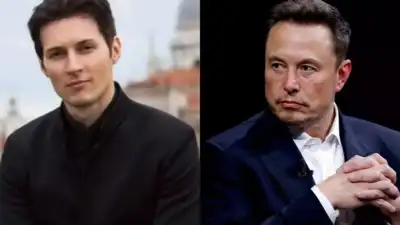Math or physics? Telegram’s Durov tells students to pick math; Musk says pair it with physics

When tech founders start weighing in on school subjects, students tend to pay attention. In a recent X exchange that sparked curiosity and classroom debates, Pavel Durov, founder of Telegram, shared a compelling argument in favour of mathematics. Elon Musk, CEO of SpaceX and Tesla, chimed in soon after, giving physics a quiet nod, with math, of course.Their brief but impactful conversation has left many students wondering: If you’re building the next big thing, should you major in math or physics?It all started with Durov’s post on July 12, 2025, where he wrote, “If you’re a student choosing what to focus on, pick MATH. It will teach you to relentlessly rely on your own brain, think logically, break down problems, and solve them step by step in the right order. That’s the core skill you’ll need to build companies and manage projects.”His post quickly racked up over a million views and thousands of reposts, with many readers applauding the straightforward career advice. While Durov didn’t discount the value of other disciplines, he positioned mathematics as the ideal launchpad for aspiring problem-solvers and future leaders.Enter Elon Musk. In a one-line reply, he offered a slight adjustment: “Physics (with math).” The emphasis on math as a tool rather than an end in itself was hard to miss.Durov followed up with a reply that brought both fields together. “+1. If you’re already strong in math, it’s worth exploring physics and computer science — both are excellent ways to apply math in the real world, sharpen your logical and critical thinking, and solve important problems.”
Which subject should students focus on?
The exchange highlights a quiet consensus: Mathematics is foundational. Whether you’re decoding physical laws or writing machine-learning algorithms, math shows up as a core skill. But physics, with its real-world complexity and focus on systems, can stretch those same muscles further.Pavel’s endorsement of math wasn’t about choosing the “hardest” subject. It was about building cognitive resilience. Math forces you to work through ambiguity, to apply logic without shortcuts, and to stick with problems until they yield. These are precisely the qualities entrepreneurs and engineers need on days when nothing goes to plan.Musk’s choice of physics, on the other hand, speaks to curiosity about the universe. Physics doesn’t just require logic; it rewards imagination. The “math with purpose” model Musk hints at has been a common thread in his ventures, from launching rockets to developing autonomous vehicles.
Takeaway for students
If you’re choosing between math and physics, this isn’t a popularity contest. It’s about aligning your subject choice with how you like to think. Do you enjoy precision and abstract problem-solving? Math might be your thing. Do you prefer applying those concepts to understand real-world phenomena? Physics could be the better fit.But if you’re still unsure, Durov’s advice holds up well: start with math. It’s the intellectual gym that trains you for almost every serious discipline, be it coding, finance, architecture, AI or theoretical physics.Because whether you’re building rockets or encrypted messaging apps, you’ll want a brain that knows how to solve hard problems, one equation at a time.TOI Education is on WhatsApp now. Follow us here.





